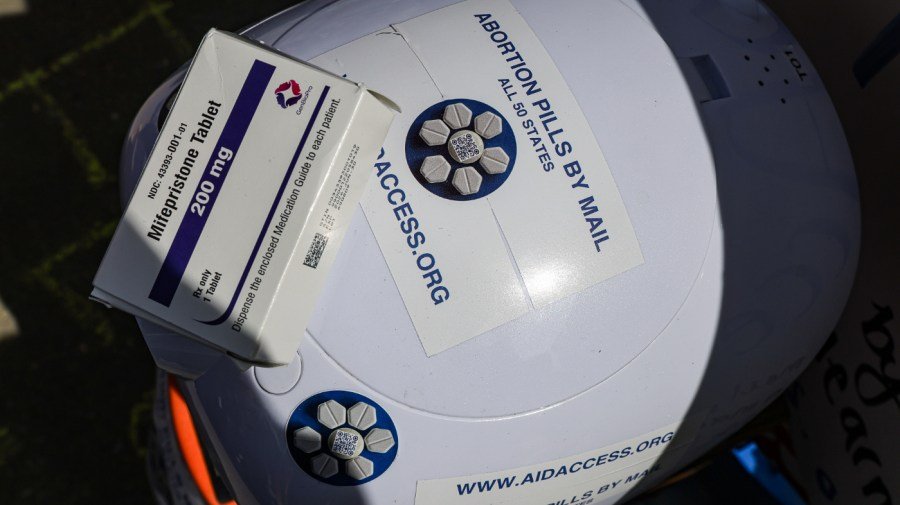
Last month’s news about the administration’s health policies and recommendations was shocking. From President Trump’s unfounded claims about Tylenol and vaccines causing autism, to the Food and Drug Administration’s fast-tracked approval of leucovorin as an autism treatment, it was clear that scientific evidence is not being prioritized by our nation’s leaders.
Add to this the havoc wrought by Health and Human Services Secretary Robert F. Kennedy Jr. at the Centers for Disease Control and Prevention, where he has fired key scientists and is undermining longstanding vaccine guidance.
Reports last month also confirmed that the FDA is conducting a senseless inquiry into the safety of mifepristone, the abortion medication first approved 25 years ago.
While a letter from Kennedy and FDA Commissioner Dr. Marty Makary stated that the agency was conducting “its own review of the evidence,” the HHS secretary has made previous comments implying that decisions about the future of mifepristone would be based on politics more than science, noting that “the policy changes will ultimately go through the White House”
This is not business as usual for the FDA. I have conducted rigorous, peer-reviewed research for over two decades, in part to help fill gaps in the FDA’s knowledge on medication abortion.
In fact, in the last Trump administration, the FDA approved my studies exploring the potential for providing mifepristone through pharmacies, including through the mail. This research, together with many other studies, informed the agency’s 2021 decision to remove some of the medication’s restrictions.
Mifepristone has a well-documented safety record, demonstrated through real-world use and in over 100 peer-reviewed research publications. Since it was approved by the FDA in 2000, it has been used by more than 7.5 million people in the U.S. to safely end early pregnancies. Mifepristone’s safety record outpaces that of penicillin or Viagra.
Why then would our nation’s public health leaders want to investigate a medication that has a track record other medications would envy? Again, this is a political agenda, using a tactic to dupe the public with false claims.
Since the Supreme Court’s Dobbs decision allowed states to ban abortion, medication abortion has become even more important. Today, 25 percent of all abortions in the U.S. are provided through telehealth, meaning that after consulting with a clinician remotely, patients receive their medications from a local pharmacy or via home delivery.
Abundant evidence shows that receiving abortion pills by mail after a telehealth evaluation is just as safe and effective as in-person care. We also consistently hear from patients that telehealth abortion offers privacy and convenience compared to the cost and burden of traveling for an in-person visit.
Rather than place more limits on medication abortion, we should follow the scientific evidence, which points in a completely different direction. We need to look at how removing remaining restrictions on mifepristone would improve health outcomes.
Research from Canada demonstrates that after the in-person dispensing requirement and other restrictions on mifepristone were removed, access to abortion improved and complications remained rare.
Secretary Kennedy’s announcement about mifepristone is not only about abortion. It is part of a broader attack on science by this administration to defund or delay scientific work.
Slashing funding and personnel at the National Institutes of Health, CDC and other agencies, and delaying or terminating research grants for flimsy reasons, this administration threatens to reverse decades of progress and destroy our country’s leadership in science and innovation. These actions fly in the face of the president’s executive order issued in May focused on “Restoring Gold Standard Science.”
Public health and medical leaders, policymakers and elected officials to urge the FDA should follow the science. Any future regulatory decisions must be evidence-based. For mifepristone, that means affirming the clear scientific consensus on the drug’s safety.
For more than a decade, politicians have slowly chipped away at abortion access in states, often ignoring the scientific evidence about the safety of abortion and the critical role it plays in comprehensive healthcare. This erosion of access has only accelerated since the Dobbs decision.
We cannot let this disregard for science extend to our nation’s highest drug regulatory body. Our health is on the line.
Daniel Grossman, M.D., is a professor of obstetrics, gynecology and reproductive sciences at the University of California San Francisco and director of Advancing New Standards in Reproductive Health.






